The Great Parade Tarot - 2nd edition
The Great Parade is my interpretation of an early Italian set of tarot cards. The imagery in the art is largely based on the Bolognese tarot (a design dating back to at least ca. 1500, but still used in parts of Italy even today in a more modern form), but I have also been influenced to some extent by other early Italian tarots.
I have aimed to emulate the simple style that is seen in many woodcut cards, and I used only four colours for the painting. For this project, I drew the linework for the cards with pen and paper at the same size as the final printed size.
I want the cards to work as a visual language. So they are text-free, without the names or numbers that appear on many tarot cards. I believe that if you are ready to embrace this idea, you will find yourself able to use these cards at least as well as any others that do have text.
Specs
The Great Parade is a full 78 card tarot deck. There are the 22 trump cards (including the fool), plus four suits of pips 1-10 and court cards jack, knight, queen, king. The suits are the usual tarot suits of swords, cups, coins, and clubs.
The cards are printed at a size of 62 x 100 mm. This is a similar width to "poker size" playing cards, but a little taller, a similar aspect ratio to "bridge size" cards, but a little bigger. The cards are printed on black-core cardstock, smooth finish. This cardstock is very similar to a typical good quality modern continental European playing card stock. The cards are supplied in a custom printed tuck box.
The Trump Suit
Here you can see some of the trump cards ...
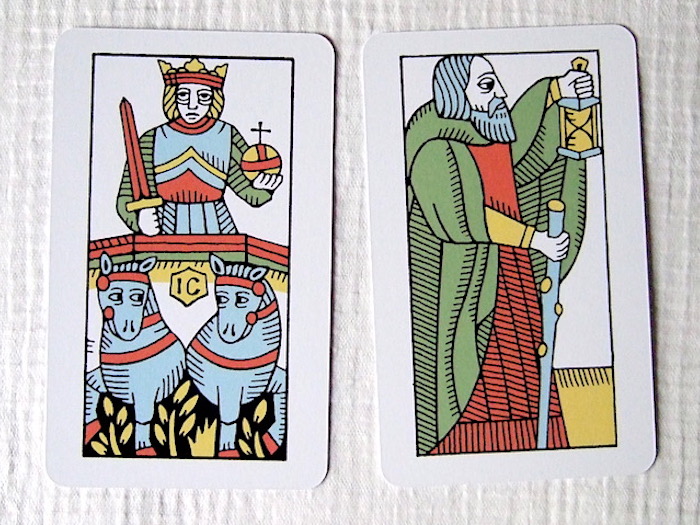
Victory and Time
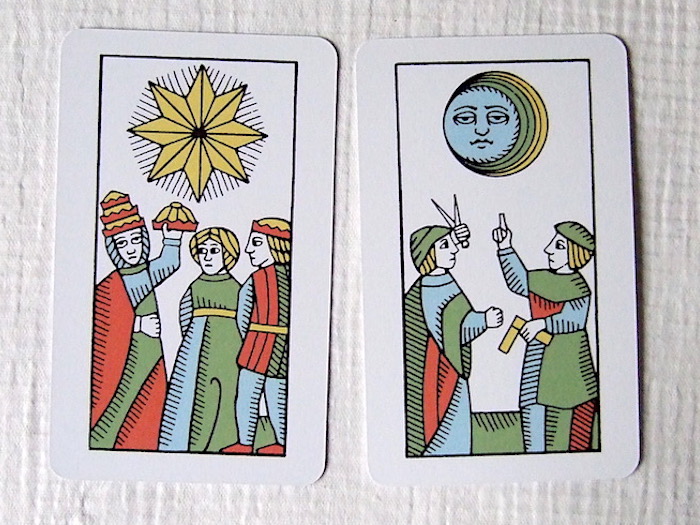
Star and Moon
The Court Cards
One unusual feature is that two of the jacks are actually female: coins and cups. The feature of two female (coins and cups) and two male (swords and clubs) jacks is seen in the old Bologna pattern, as well as the (late 15th century) Rosenwald sheets, and Florentine Minchiate. The idea of two old (coins and cups) and two young (swords and clubs) kings is more common, and is seen in many different tarot decks.

Knight and Queen of swords
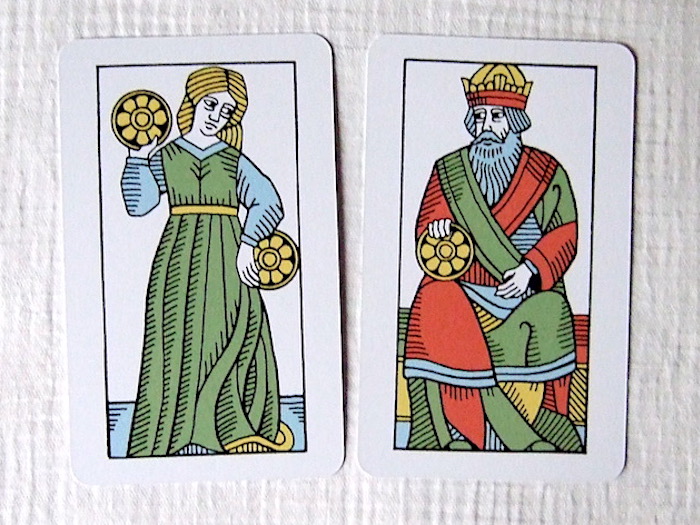
Female Jack and King of coins
The Pip Cards
The pip card artwork follows the Bologna pattern pretty closely. The pips are also very closely related to Italian-suited playing card layouts. For the second edition of these cards, some of the lower-numbered pip cards are fancier, with flower-leaf decorations or fancier pips (or both).

Some of the ordinary suit cards: coins and cups

Some of the ordinary suit cards: swords and clubs
Back and Box
Here you can see the card back (full bleed) and tuck box.
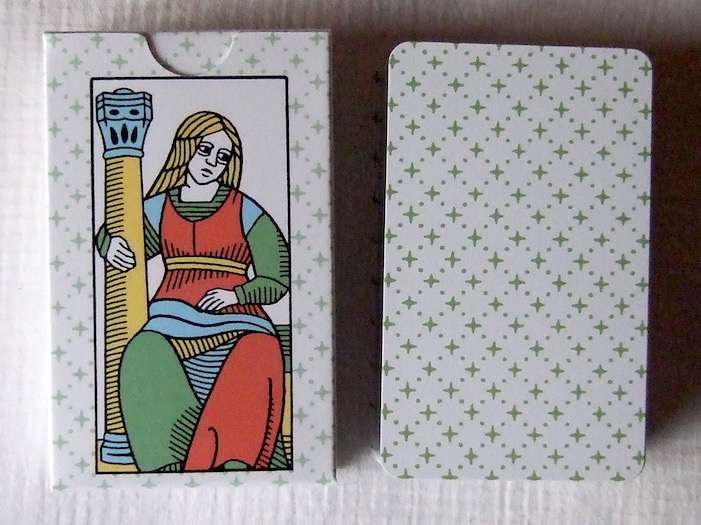
Card back and tuck box
About the Influences
Finally you can see some of the various cards, images, and styles that have influenced what I have done ... the cards in this image are approx to scale with each other.
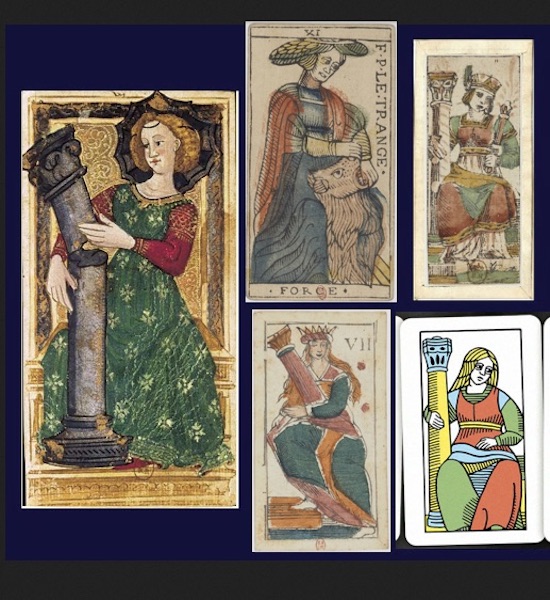
Left is the handmade so-called "Charles VI" strength card (1400s); top right is the strength card from the Fine dalla Torre cards, an old nearly complete set of Bologna pattern tarot cards (1600s); bottom middle is a typical woodcut strength card from the Florentine Minchiate tradition (1763); bottom right is the strength card from The Great Parade; top middle is a French tarot card (an early Marseille pattern card) from Dodal, included here for size comparison and to show the particular woodcut style (1713).
Back to The Great Parade page.